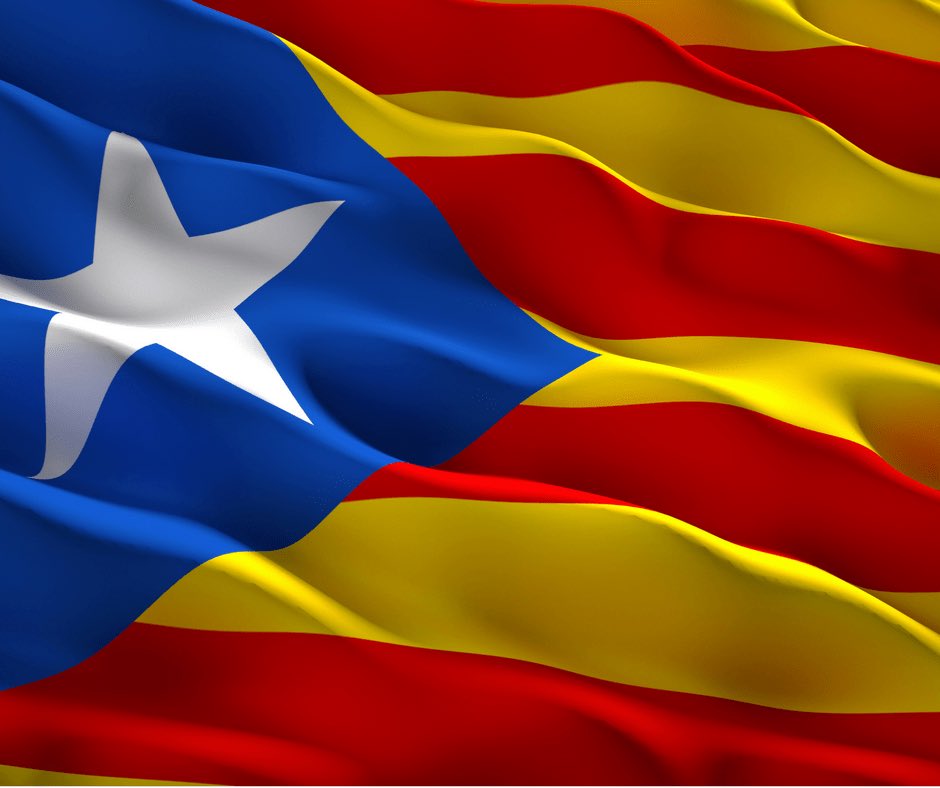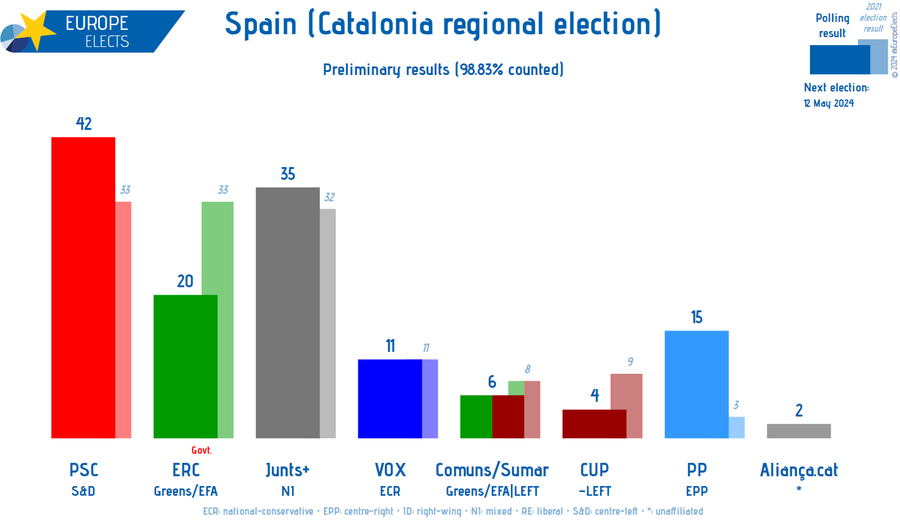International
Indipendentist parties lost elections in Catalonia. Socialists and Populars won

The pro-independence parties that have ruled Catalonia for a decade lost their majority in the regional parliament on Sunday, according to partial results from the regional elections won by Spanish Prime Minister Pedro Sánchez’s Socialists, six and a half years after the 2017 secession attempt.
After more than 98% of the ballots had been counted, the three separatist formations, including Carles Puigdemont’s Junts per Catalunya (Together for Catalonia) and the ERC (Republican Left of Catalonia) of current regional president Pere Aragonès, won 59 seats. The majority is set at 68 seats in a parliament of 135. In the last regional elections in February 2021, these three parties won 74 seats.

For their part, Pedro Sánchez’s Socialists won 42 seats, nine more than in 2021, and succeeded in showing that separatist sentiment had stalled in Catalonia, more than six years after the secession attempt of October 2017, one of the worst crises experienced by contemporary Spain.
But their candidate, Salvador Illa, former Minister of Health during the COVID-19 pandemic, will need to find partners to articulate a majority. In 2021, he had already won the regional elections but was unable to be sworn in as regional president in a majority pro-independence parliament.
Which alliance?
The hypothesis most cited by analysts is an alliance with the far left, which governs in Spain with Pedro Sánchez, and with the ERC, the most moderate pro-independence party, which lost considerable ground in this election.
Between them, these three parties would barely have an absolute majority of 68 seats.
Pedro Sánchez had made this election a central issue of his mandate in order to prove that the policy of détente he has pursued in Catalonia since coming to power in 2018 has borne fruit and led to a decrease in separatist sentiment in this region of eight million inhabitants, which is one of the country’s economic and industrial engines. The socialist victory is also a relief to the prime minister, whose power has been weakened by the opening of a legal investigation against his wife, from whom he had considered resigning two weeks ago.
Determined to “close the wounds” opened by the “political crisis” of 2017, the Prime Minister pardoned in 2021 the pro-independence leaders sentenced to prison and agreed last year to pass an amnesty law for all separatists prosecuted by the courts in exchange for the support of their parties for his reappointment for a new four-year term. The amnesty is due to be voted on definitively by deputies in the coming weeks and will allow the return to Catalonia of Carles Puigdemont, who fled the region in 2017 to Belgium to escape prosecution.
A highly controversial measure, it has brought the right-wing and far-right opposition to the streets, accusing the Prime Minister of having become a “hostage” of the pro-independence movement simply to maintain his grip on power.






